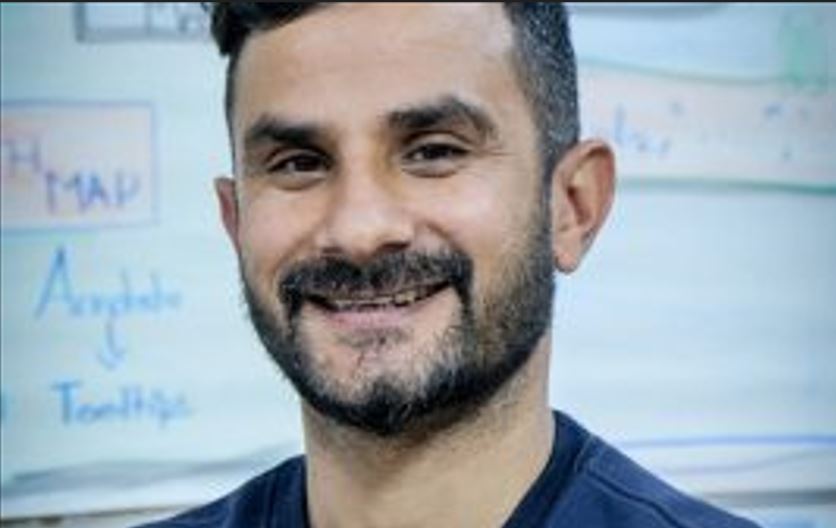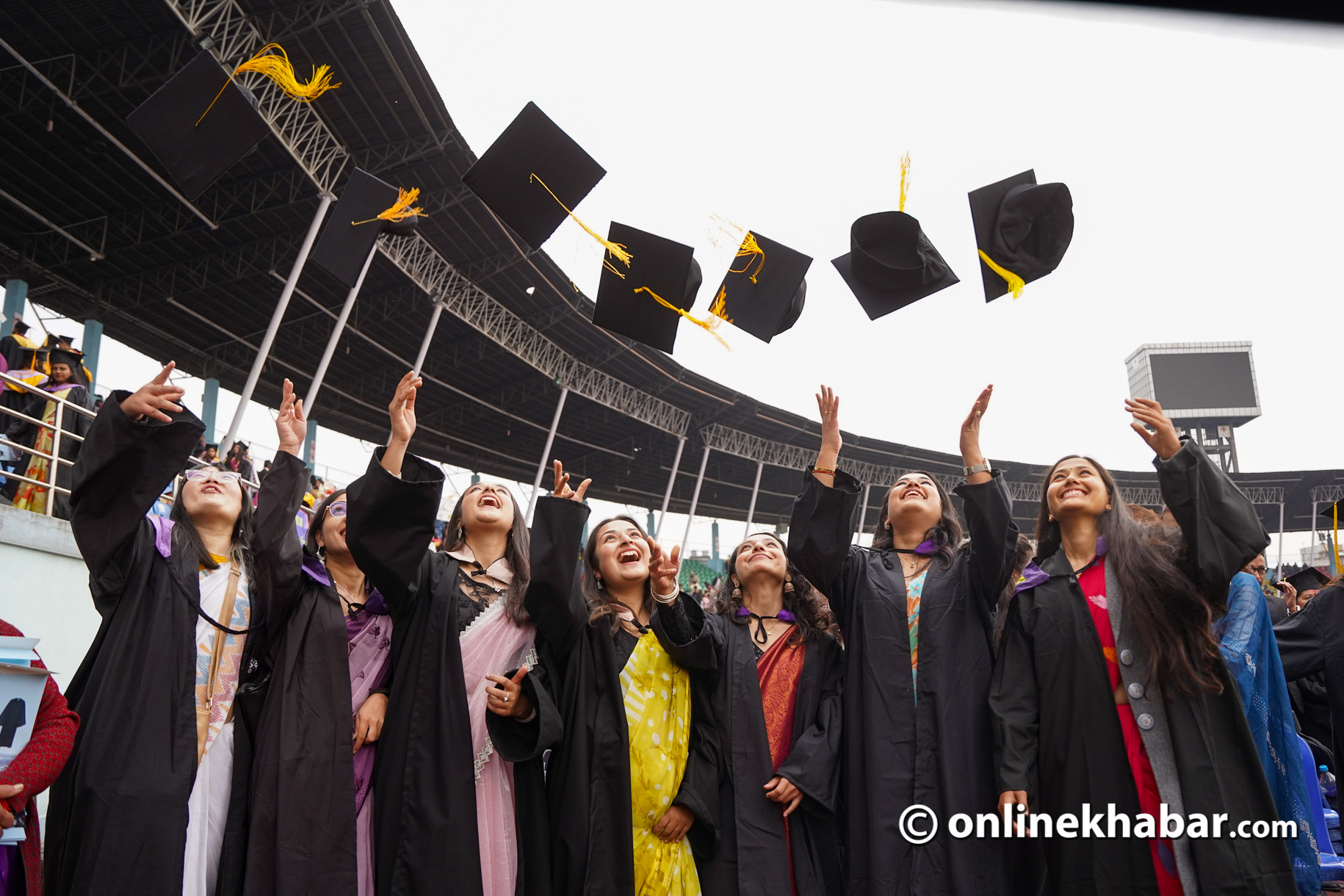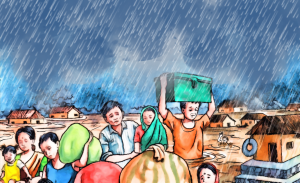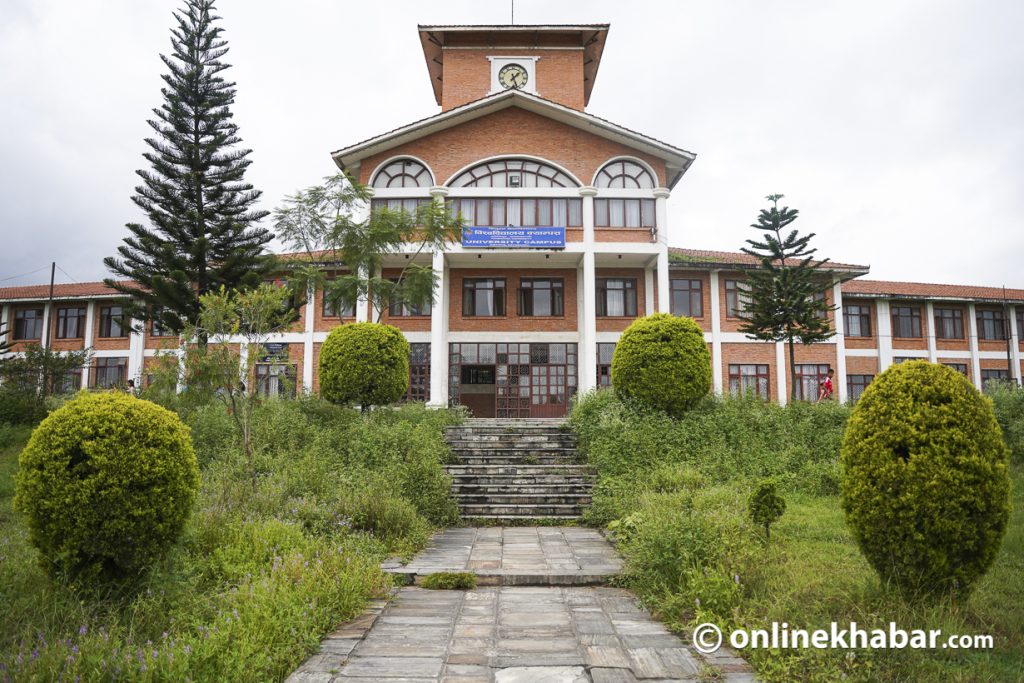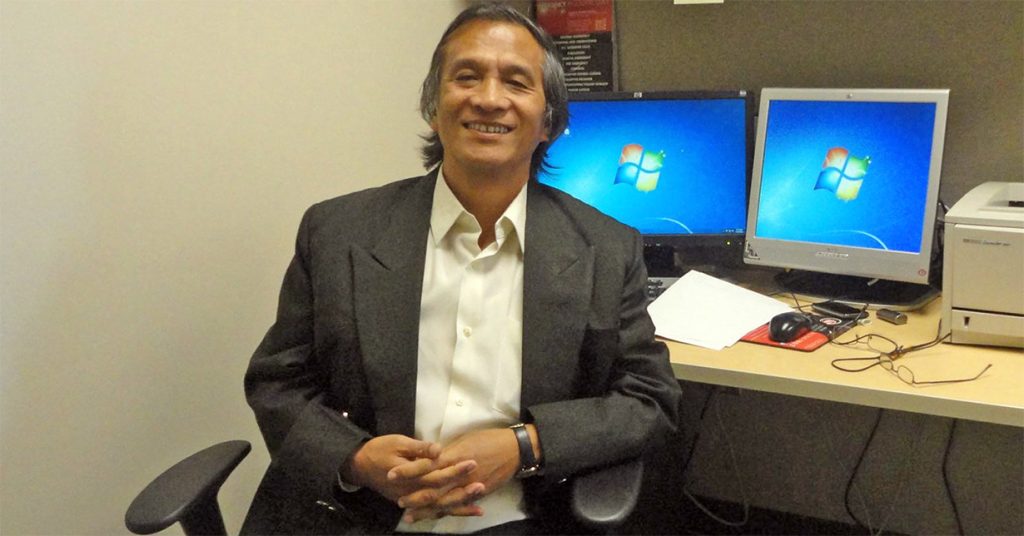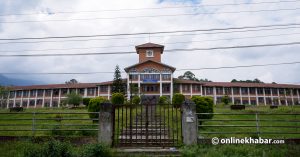
Saturday witnessed an unusual scene at the Dasharath Stadium, typically known for hosting sports events. Despite the absence of any such competition, the stands were packed, and long lines stretched from Thapathali to Shahid Gate. The excitement revolved around Tribhuvan University’s 50th Convocation Ceremony, a highly anticipated event that drew students and their families.
Among the crowd was Hira Shrestha, who braved the throng with her six-month-old baby in her arms. For her, the day marked the culmination of relentless effort and dedication. Shrestha, who achieved the highest grades in her Master’s in Philosophy (MPhil) program in Management, was honoured with the prestigious Tribhuvan University Teachers’ Association Shahid Associate Professor Hariraj Adhikari Gold Medal. With a remarkable 3.95 CGPA, she received the medal from Prime Minister and Chancellor KP Sharma Oli.
Shrestha’s eyes welled up with tears of joy as her name was called. It was a moment of pride, not just for her but for the 14,308 students who attended the ceremony in person to receive their degrees.

A call to serve the nation
Prime Minister Oli, addressing the gathering in his capacity as Chancellor, urged the graduates to use their knowledge and skills for the betterment of the country. His appeal was directed at reversing the trend of skilled youth leaving Nepal in search of opportunities abroad.
“I am committed to staying and serving my country,” said Shrestha in an interview. “Opportunities exist here, and I’ve even encouraged my husband to return to Nepal.” Currently employed at the University Grants Commission, Shrestha has no plans to leave the country.
Opportunities in Nepal
For many medalists, the idea that Nepal lacks opportunities is a misconception. Shrijya Kafle, who received three medals — the Tarapad Chaudhary Medal, Khagendra Man Singh Pradhan Medal, and Chandra Raj Dhungel Memorial Medal — for her achievements in Economics, echoed similar sentiments.
“I plan to pursue my PhD abroad but will return to contribute to Nepal’s economic development,” said Kafle, who scored a 3.67 CGPA. She believes that international exposure can complement the love for one’s homeland and the familial bonds that are irreplaceable.
Rebika Bhandari, a two-time gold medalist in MBS, also envisions her future in Nepal. With a CGPA of 3.90, she plans to pursue her PhD domestically, emphasising the improvements in Nepal’s educational system. “I see a brighter future for education here,” said Bhandari, who received the Sardar Gunjan Man Singh Gold Medal and Ram Krishna Nyachhe Award.
Commitment to Nepal
Pratik Raj Joshi, who received the Dr Dubasu Kshetri Gold Medal for his 3.81 CGPA in International Relations, shares a similar commitment. Currently employed in Nepal’s Foreign Ministry, Joshi dismissed the idea of leaving the country. “I am working in my field of study, and I have no plans to migrate,” he said. Joshi joined the civil service in 2020 and sees ample opportunities for success within Nepal.
However, he noted that the government must create an environment conducive to economic growth to prevent brain drain. “The exodus of youth leaves villages empty. The state must prioritise job creation,” he said.
The role of the government

Chetana Kunwar, a journalism graduate with a 3.68 CGPA and recipient of the Narayan Shanti Mishra Medal, also highlighted the need for government support. “I’m working in journalism and will continue in this field,” she said, adding that she has already begun her PhD at Kathmandu University.
Shreena Kshetri, who earned the Dr Ram Prasad Chaudhary Gold Medal in Botany with a 3.80 CGPA, has similar aspirations. “I plan to join government service and contribute to Nepal,” she said, emphasising her commitment to her homeland.
Bridging the gap
While most medalists expressed their determination to stay and serve Nepal, they also pointed out the government’s responsibility to create opportunities. The prevailing trend of viewing citizens merely as voters rather than contributors to the nation’s progress must change. Without systemic reform, promises made at such ceremonies risk being reduced to mere formalities, eroding the trust of those determined to invest their knowledge and skills in Nepal’s future.
The convocation honoured students from diverse fields for their academic excellence. Here are some highlights:
- Hira Shrestha: MPhil in Management, CGPA 3.95 – Hariraj Adhikari Gold Medal.
- Shrijya Kafle: Economics, CGPA 3.67 – Tarapad Chaudhary Medal, Khagendra Man Singh Pradhan Medal, and Chandra Raj Dhungel Memorial Medal.
- Rebika Bhandari: MBS, CGPA 3.90 – Sardar Gunjan Man Singh Gold Medal and Ram Krishna Nyachhe Award.
- Pratik Raj Joshi: International Relations, CGPA 3.81 – Dr Dubasu Kshetri Gold Medal.
- Chetana Kunwar: Journalism and Mass Communication, CGPA 3.68 – Narayan Shanti Mishra Medal.
- Shreena Kshetri: Botany, CGPA 3.80 – Dr. Ram Prasad Chaudhary Gold Medal.
- Sudha Kafle: MBA, CGPA 3.94 – Indra Bhakta Shrestha Gold Medal.
- Sushil Pokharel: MSc in Chemistry, CGPA 3.95 – Amrit Medal.
- Rikita Bhandari: MSc in Environmental Science, CGPA 3.94 – Madan Bidya Environmental Science Award.
- Sudiksha Ghimire: MA in English Literature, CGPA 3.88 – Narendra Mani Acharya Dixit Medal and D. Mohan Prasad Lakhe Gold Medal.
Female dominance
The ceremony highlighted a significant achievement for female students, who outperformed their male counterparts in medal counts. Of the 24 medal recipients, 17 were women.
This year, 74,149 students graduated, including 53,682 from undergraduate programs, 20,135 from postgraduate programs, 178 from MPhil programs, and 154 from PhD programs. However, only 14,308 graduates participated in the convocation ceremony.
As Nepal grapples with challenges of brain drain and limited opportunities, the resolve of these gold medalists to contribute to their homeland offers a glimmer of hope for the nation’s future.


